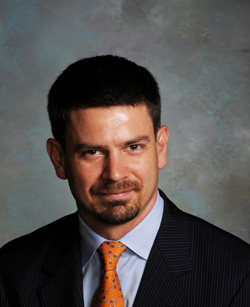Jason Davidson, associate professor of political science and international affairs, will discuss his new book, “America’s Allies and War: Kosovo, Afghanistan, and Iraq,” during a book forum at the Cato Institute in Washington, D.C., on Tuesday, May 10 at 4 p.m.
book, “America’s Allies and War: Kosovo, Afghanistan, and Iraq,” during a book forum at the Cato Institute in Washington, D.C., on Tuesday, May 10 at 4 p.m.
The book forum is free and open to the public. Advance registration is required for all Cato events. Seating is limited. The forum also will be streamed live over the Internet. For more information, visit http://www.cato.org/event.php?eventid=7943.
The website says, “The United States pledges to defend our NATO allies under Article V of the North Atlantic Treaty. Why, and in what ways, do the allies reciprocate? Jason Davidson will present evidence from his unique analysis of transatlantic burden-sharing to explain why Britain, France, and Italy provide or refuse military support for U.S.-led uses of force. Sixty original interviews with top policymakers and analysts provide insight into allies’ decisions regarding the Kosovo War (1999), Afghanistan (2001), and the Iraq War (2003). Davidson shows that such decisions reflect a combination of factors such as alliance value, threat, prestige, and electoral politics. Join us for a discussion that will include recommendations for how U.S. policymakers can increase the allies’ contributions to global security, and shift some of the burdens of defense off the shoulders of American taxpayers.”

